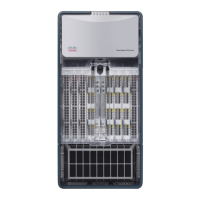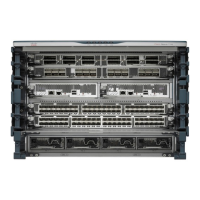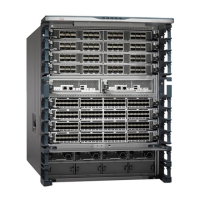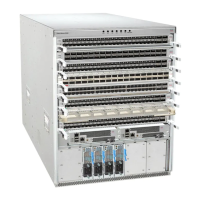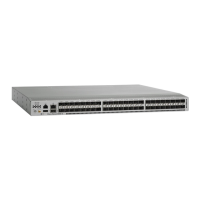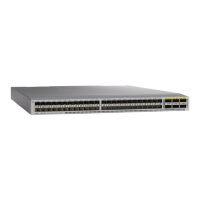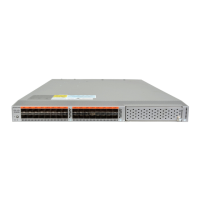Send document comments to nexus7k-docfeedback@cisco.com.
4-4
Cisco Nexus 7000 Series NX-OS Unicast Routing Configuration Guide, Release 4.x
OL-20002-02
Chapter 4 Configuring DNS
Configuring DNS Clients
4. ip domain-list name [use-vrf vrf-name]
5. ip name-server server-address1 [server-address2... server-address6] [use-vrf vrf-name]
6. ip domain lookup
7. show hosts
8. copy running-config startup-config
DETAILED STEPS
Command Purpose
Step 1
config t
Example:
switch# config t
switch(config)#
Enters configuration mode.
Step 2
ip host
name
address1
[
address2...
address6
]
Example:
switch(config)# ip host cisco-rtp
192.0.2.1
Defines up to six static host name-to-address mappings
in the host name cache. The address can be either an
IPv4 address or an IPv6 address.
Step 3
ip domain-name
name
[use-vrf
vrf-name
]
Example:
switch(config)# ip domain-name
myserver.com
(Optional) Defines the default domain name server that
Cisco NX-OS uses to complete unqualified host
names. You can optionally define a VRF that Cisco
NX-OS uses to resolve this domain name server if it
cannot be resolved in the VRF that you configured this
domain name under.
Cisco NX-OS appends the default domain name to any
host name that does not contain a complete domain
name before starting a domain-name lookup.
Step 4
ip domain-list
name
[use-vrf
vrf-name
]
Example:
switch(config)# ip domain-list
mycompany.com
(Optional) Defines additional domain name servers
that Cisco NX-OS can use to complete unqualified
host names. You can optionally define a VRF that
Cisco NX-OS uses to resolve this domain name server
if it cannot be resolved in the VRF that you configured
this domain name under.
Cisco NX-OS uses each entry in the domain list to
append that domain name to any host name that does
not contain a complete domain name before starting a
domain-name lookup. Cisco NX-OS continues this for
each entry in the domain list until it finds a match.
Step 5
ip name-server
address1
[
address2...
address6
] [use-vrf
vrf-name
]
Example:
switch(config)# ip name-server
192.0.2.22
(Optional) Defines up to six name servers. The address
can be either an IPv4 address or an IPv6 address.
You can optionally define a VRF that Cisco NX-OS
uses to reach this name server if it cannot be reached
in the VRF that you configured this name server under.
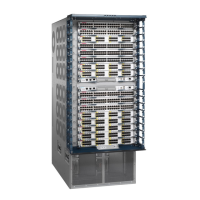
